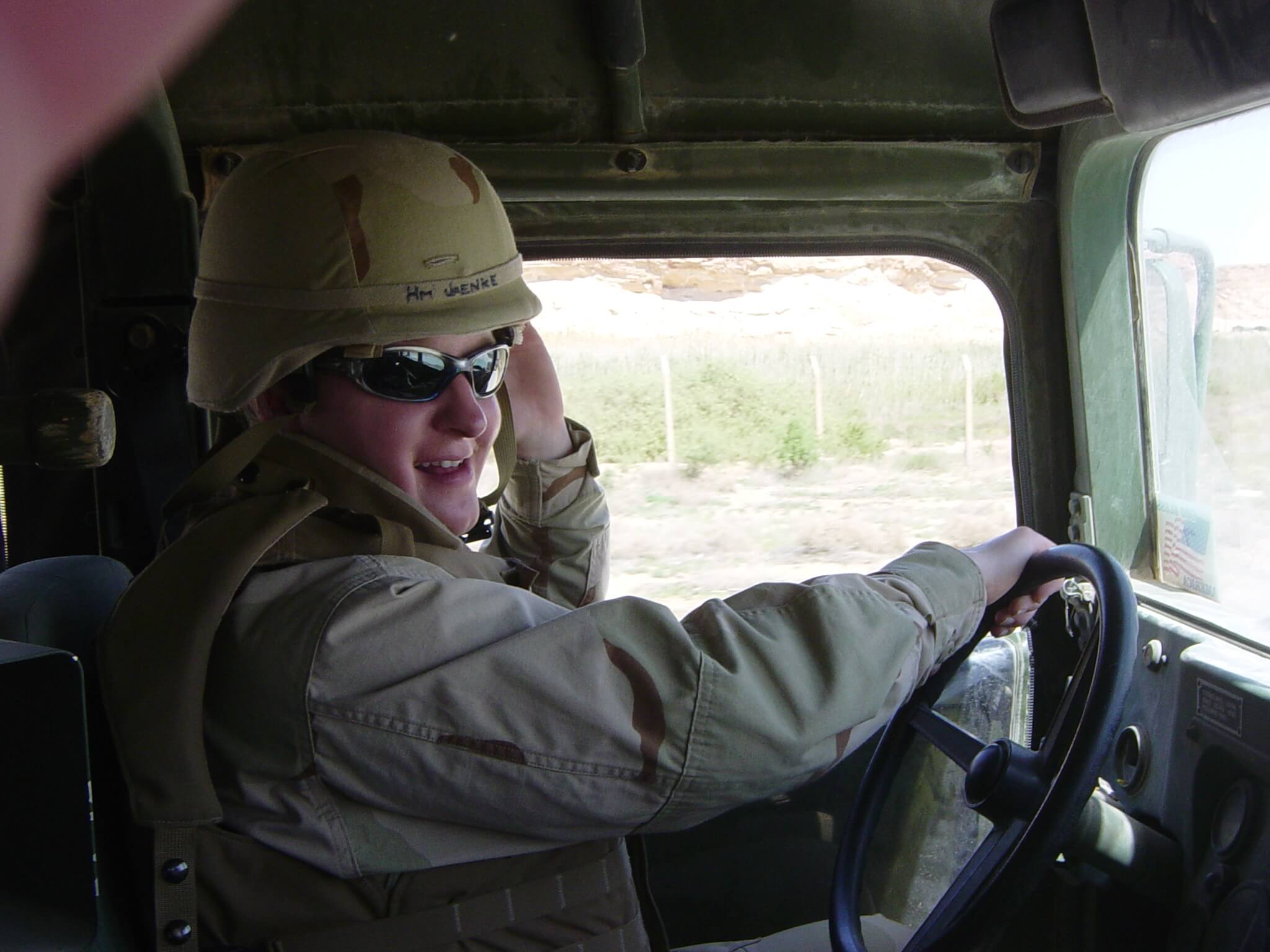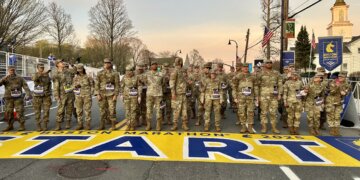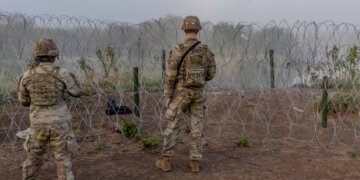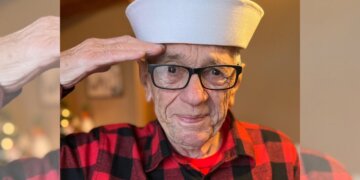The soundtrack of Jeff Hauswirth’s life is different now.
Balls bounce and kids shout in the seventh-grade gym class he teaches in Houghton, Mich. Hauswirth’s keyboard clicks as he deals with mundane emails and announcements from his office. At home, his three adult children visit while his seven-month-old babbles in their arms. His wife, Erin, tells him she loves him. When he’s feeling sad or inspired, he picks up his guitar and starts playing.
It’s that strum of the guitar that bridges the 49-year-old back to the sounds of his former life: the winds whipping through the Iraqi sands, the barked instructions to his fellow corpsmen as they tended to the injured, the late-night campfire jam and journal sessions where he stared at the stars and wondered who would survive Operation Iraqi Freedom – and who wouldn’t.

Hauswirth, a former Navy reservist, keeps strumming as another sound plays through his mind: someone heartbrokenly announcing that his friend, Navy Petty Officer 2nd Class Jaime Jaenke, didn’t make it.
“She was so friendly and she got along with everybody; I don’t think there was a lot of negativity about her from anyone she worked with,” Hauswirth remembers. Then, as if snapping back to his professional training — “Seabees can do,” after all — he says, “She had really good medical skills.”
Yet all the medical skill in the world couldn’t save Jaenke, so Hauswirth keeps singing, the minor chords offering a haunting accompaniment to his bass voice: Thought you’d get out and rule the world/head on home and raise your girl/thought you’d conquer it all/but we all thought wrong…
Painful loss
Hauswirth had already served five years as an active duty sailor when he joined the Navy Reserve. In 2005, he met Jaenke, a mother of an elementary-schooler from small-town Iowa, when he assisted with her training. And the following year, both deployed to al Asad, Iraq.
He had never lost anyone to violence before, but that year, his battalion suffered three causalities. Jaenke was one of them. She was killed June 5, 2006 when her Humvee was hit by a roadside bomb in the Al Anbar province.
She was only 29 years old, a detail that struck Hauswirth hard.
“When I was 29, I had two kids, one on the way and was just starting my teaching career,” he recalls.
In some ways, it seems like a lifetime ago, highlighting how much life Jaenke has — and will keep — missing. Yet his own life kept plugging ahead, first returning to the States and next resuming his career and family life.

But his friend would stay 29 forever. So Hauswirth, a self-taught guitarist and singer, started songwriting. “Forever 29” was the result, but it wouldn’t leave the page for a decade. It was just too raw and painful.
“One of the psychologists who talked to the battalion, before we left, one thing he said was, ‘You never come back through the door you left,’” Hauswirth says. “Because [war] changes you, whether you lose somebody or not. It changes you.”
And true to form, it had changed Hauswirth. To the rest of the world, he was a success story: he earned his master’s in exercise science (his bachelor’s was in education); he had a beautiful family; he held down an honorable job; he wasn’t addicted to drugs or alcohol. But inside, he knew he needed to create, to honor a loss that still swept through his thoughts every day.
Humvee healing
In 2018, Hauswirth completed a veteran’s entrepreneurship program through the University of Tennessee at Chattanooga, and while there, met a speaker who had music connections in Nashville. From that meeting eventually came studio time and a six-song extended play called Forever 29. The EP, released through Hauswirth’s Humvee Records, LLC, debuted April 26 on all digital and streaming outlets.
The title track, of course, refers to Jaenke, while three others are based on Hauswirth’s military experience. The former corpsman, who retired after more than 20 years of combined service, not only wrote and sang every song but will donate a quarter of the proceeds to the USO.
Each song reflects a man who feels both the agony and the beauty of life.
“I felt a little bit of guilt [after coming home], because I know there were people who didn’t,” Hauswirth says. “I feel bad for anyone I met for the first year or so after, because I don’t think they met the real me — you’re still in that transitional mode.”
He adds, “Part of you stays there [in the warzone].”
That hard fact bubbled up as he recorded, not just singing each song once or twice but again, again and again, meaning that the pain hit him fresh with every lyric.
“It wound up being good, long-needed therapy, because there was a lot I didn’t realize I was dealing with,” Hauswirth admits. “Maybe, in a way, if [this EP] can help somebody else, then I’m okay with that.”
Though music has helped him heal, the scars will always be there, something all the success in the world can’t erase. But imagining what Jaenke would think of Forever 29 helps, in its own small way.
“I would hope she would like it. She’d probably laugh and call me a baby,” Hauswirth says, laughing himself at the thought.
Then a pause, his voice tinged with both woundedness and wonder. “I would hope she would see the honor of it.”






































